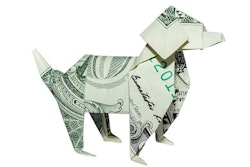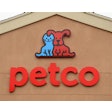
Pet food, treat and other product online retailer Chewy selected Salisbury, North Carolina for its new fulfillment center that will serve the Southeastern United States, announced the North Carolina Department of Commerce. The facility will create 1,200 new jobs and result in a US$55 million investment by Chewy in Rowan County.
Chewy has headquarters in Dania Beach, Florida and Boston, Massachusetts. Chewy’s customer service centers are in Dallas, Texas and Hollywood, Florida. The online pet food retailer has eight fulfillment centers around the country.
"We're excited to expand Chewy's fulfillment operations to North Carolina, our first in the state and ninth in the country," said Pete Krilles, Chewy vice president of corporate real estate and facilities, in a press release. "In addition to job creation, our new fulfillment center will enhance our delivery network across the southeastern United States, allowing us to better service Chewy customers with even faster delivery times."
A performance-based grant of US$166,650 from the One North Carolina Fund will support the creation of 150 of the new jobs, facilitating Chewy’s establishment of its new facility in North Carolina. The One N.C. Fund provides financial assistance to local governments to help attract economic investment and to create jobs. Companies receive no money upfront and must meet job creation and capital investment targets to qualify for payment. All One NC grants require a matching grant from local governments and any award is contingent upon that condition being met.
E-commerce helps US dog, cat food sales hit US$27 billion
Chewy plays a large role in the rise of retail sales of dog and cat food in 2018, which rose approximately 4.3 percent over 2017’s total to reach US$27.15 billion in the United States, wrote Packaged Facts analysts in "Pet Food in the US, 14thEdition.” Online sales of pet food served as a major driver for overall industry growth in 2018. However, e-commerce continued to chip away at brick-and-mortar retailers’ share of the market, and now threatens established brands with private label pet foods from Amazon and Chewy.
Dry dog food remains largest segment of market
Across all retail outlets, dog food dominates with 67 percent of sales. Dog food retail sales hit approximately US$18.2 billion in 2018. Cat food retail sales in the U.S. totaled US$9 billion.
In both dog and cat food, dry food held the largest portion of the market with approximately 72 percent and sales value of US$19.6 billion. Wet pet food followed with 25 percent market share and sales valued at US$6.9 billion. Frozen or refrigerated pet food and semi-moist products each made up less than 1 percent of the U.S. pet food market in 2018.
U.S. pet food retail sales by channel
Pet specialty chains, including PetSmart and Petco, held the largest share of retail sales in the U.S. at 23 percent in 2018. Mass-market retailers, such as Walmart and Target, stood in second place with 20 percent of retail market share. Although in third place, Internet-based pet food sales grew rapidly to make up 17 percent of the 2018 pet food market in the U.S.
Amazon, Chewy private label pet foods threaten profits
Part of the way internet retailers gain market share is by producing their own brands of dog and cat food. Packaged Facts analysts agreed with an earlier report that private label pet foods from Amazon and Chewy threaten established brands by leveraging their online sales platform to boost visibility.
As more pet owners look to purchase pet food over the internet, online retailers increasingly have opportunities to boost exposure of their own brands by featuring those dog and cat foods in sponsored advertisements, on homepage displays and through other means, wrote Gartner L2 analysts in the report “Digital IQ Index: Pet Care U.S. 2018.” The ability of online retailers to undercut premium pet foods with their own brands threatens the profitability of pet food premiumization, which currently drives pet food sales value growth while volume growth stagnates.
















